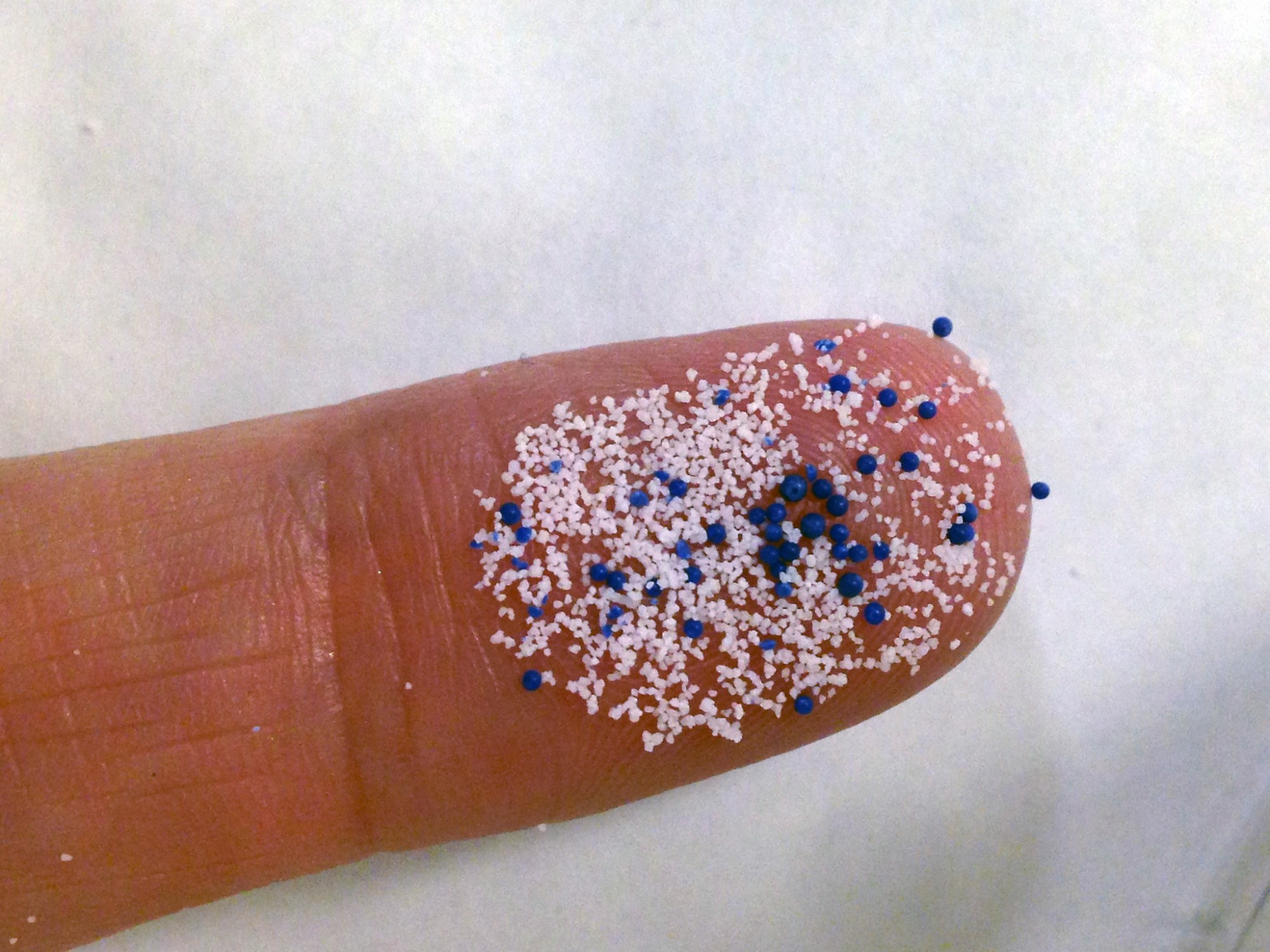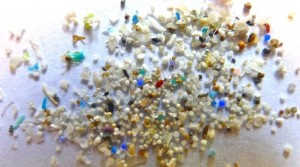
Many people are aware of the dangers of plastics being introduced into the world’s oceans. Public awareness campaigns have greatly reduced a significant reliance on plastic bags in personal shopping, with many countries and localities banning them outright. Plastic packaging is increasingly being made from recycled material, and bio-degradable plastics are becoming more widely used. But there is a certain type of plastic that is rapidly making its way into the world’s oceans, and it is almost too small for the naked eye to see.
These plastics are called microplastics, and can come from a variety of sources, including the breakdown of larger plastics. However, the most common source is from microbeads, plastics that are used in health and beauty products like skin exfoliates, and are meant to replace natural small abrasive materials. About eight billion microbeads a day, or some 2.9 trillion microbeads a year, end up in aquatic habitats across the country, according to some estimates. That’s enough microbeads to wrap around the world more than seven times.
Even a piece of plastic floating in the ocean as tiny as a microbead can house more than 1,000 different microbes. The amount of bacteria, algae, and single-celled organisms growing on a single piece of plastic are diverse enough to form their own complex and delicate ecosystem—much like that of a coral reef—known as a “plastisphere.” And because plastic can travel such great distances in the open ocean and takes so long to degrade, these microbes might even be considered invasive species, according to research.
The awareness of the dangers of these types of plastics are becoming increasingly known, and certain countries such as the United States are taking steps to ban them. If you would like to do your part, it is as simple as opening up Google. There are pages of companies, such as the UniLever family of products, which have eliminated microbeads from their products. Little steps like these can make a great impact on lessening the environmental threat to our world’s marine habitats, such as the Great Barrier Reef.

